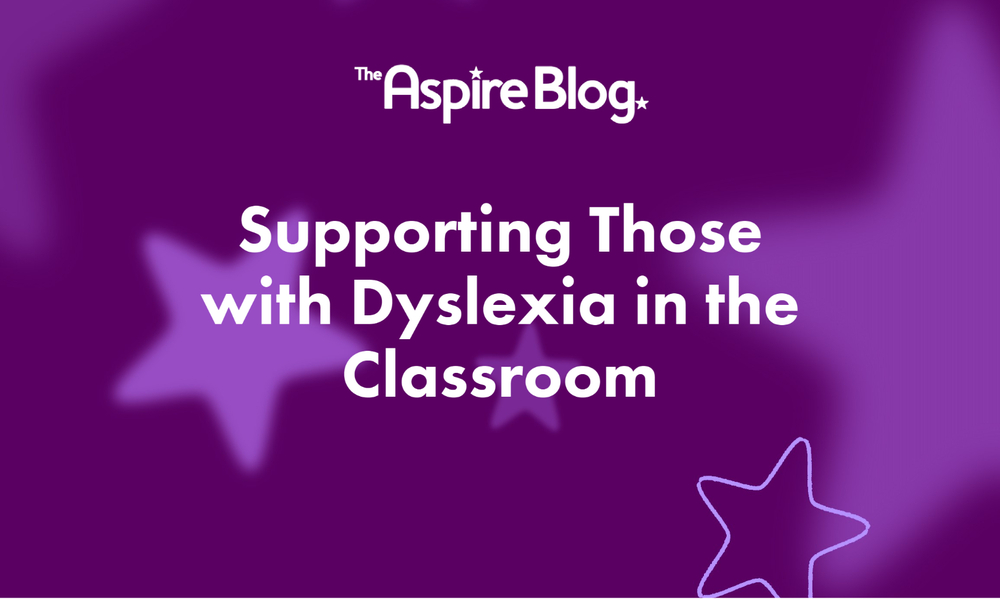Supporting Those with Dyslexia in the Classroom
Published date: 2020/09

At Aspire People we’re aware that dyslexia is common within schools, with most educators having at least one student in their class who has dyslexia, what is dyslexia you might ask? Dyslexia is commonly referred to as a learning disability that affects reading, writing and speaking, however, it does not affect intelligence therefore we’d like to call it a difficulty instead.
For educators it could be difficult to understand their student’s issues or frustrations in their learning that could be harder for pupils who do have dyslexia, to ensure people are educated on this topic we want to share some tips and ways to help in this short read!
Signs of Students with Dyslexia
Here are some of the most common signs of dyslexia and behaviours:
Reading or writing slower than others
Confusing words
Having difficulty spelling
Understanding verbally however writing words down differently
Anxieties Caused From Dyslexia
Unfortunately having dyslexia in schools can cause anxiety. Going through education and being the only person in a large classroom who struggles with reading, writing, and sometimes digesting information can be upsetting. Dyslexic students will often read a couple of years behind their peers and this can be easily highlighted in a class reading session for example. From this anxiety will start to creep in, often dyslexia is misunderstood by the student, teachers, and peers. Resulting in students feeling like they are not as clever as their peers, which can also lead to bullying and teasing, when in fact having dyslexia means that they are better at different things!
Below is a video of Steven Spielberg talking about his experience with dyslexia in school and how he also suffered from anxiety. Steven is not the only celebrity to speak about his experience of dyslexia, more and more celebrities and successful people are speaking of their struggles surrounding their dyslexia.
School Strategies for Students with Dyslexia
Offer longer times for tasks that involve reading writing and speaking, by doing this you can help students to feel calmer whilst working and participating rather than feeling rushed and causing stress, which is something that should be avoided.
Expect less written work than other students, people with dyslexia’s most common issue and frustration is known to be writing. By understanding yourself that this is something your pupil has an issue with can enable you to work with them a little bit more, for example you could set aside some time and offer one-to-one work that could include tips or examples of work that could help with their work and progression in their writing tasks.
Study your students' skills and strategies in their work, this can enable you to understand their way of learning more and get an insight into how you can help them in the future to complete assigned tasks.
Join other educators and visit the Aspire Blogtoday for more teaching information and tips for the classroom! If you want to find your perfect job role then take a look at our latest vacancies, or you can register with us and start your Aspire journey!
